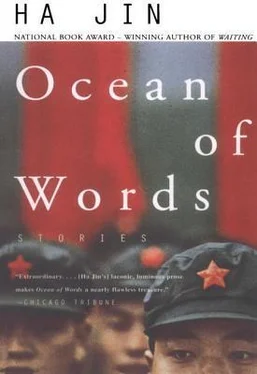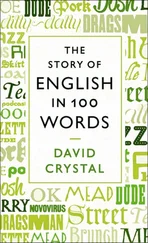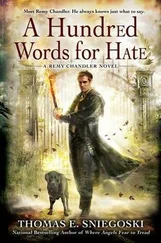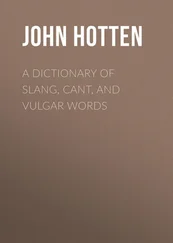One evening as Zhou was reading in the room, Director Liang came in, followed by his wife carrying two cups. “Have some tea, Little Zhou?” Liang said. He took a cup and sat down on the sofa, which began squeaking under him.
Zhou stood up, receiving the cup with both hands from Mrs. Liang. “Please don’t do this for me.”
“Have some tea, Little Zhou,” she said with a smile. She looked very kind, her face covered with wrinkles. “We are neighbors, aren’t we?”
“Yes, we are.”
“Sit down, and you two talk. I have things to do downstairs.” She turned and walked away.
“Don’t be so polite. If you want tea, just take it,” Liang said, blowing away the tea leaves in his cup. Zhou took a sip.
“Little Zhou,” Liang said again, “you know I like young people who study hard.”
“Yes, I know.”
“Tell me, why do you want to study?”
“I don’t know for sure. My grandfather was a scholar, but my father didn’t finish middle school. He joined the Communist Army to fight the Japanese. He always wants me to study hard and says we are a family of scholars and must carry on the tradition. Besides, I like reading and writing.”
“Your father is a good father,” Liang announced, as if they were at a meeting. “I’m from a poor peasant’s family. If a carrying pole stood up on the ground, my father couldn’t tell it means ‘one.’ But I always say the same thing to my kids like your father says. You see, nowadays schools are closed. Young people don’t study but make revolution outside school. They don’t know a fart about the revolution. For the revolutionary cause I lost my arm and these fingers.” He raised his only hand, whose little and ring fingers were missing. The stumps quivered in the fluorescent light.
Zhou nerved himself for the question. “Can I ask how you lost your arm?”
“All right, I’m going to tell you the story, so that you will study harder.” Liang lifted the cup and took a gulp. The tea gargled in his mouth for a few seconds and then went down. “In the fall of 1938, I was a commander of a machine-gun company in the Red Army, and we fought against Chiang Kai-shek’s troops in a mountain area in Gansu. My company’s task was to hold a hilltop. From there you could control two roads with machine guns. We took the hill and held it to protect our retreating army. The first day we fought a battle with two enemy battalions that attempted to take the hill from us. They left about three hundred bodies on the slopes, but our Party secretary and sixteen other men were killed. Another twenty were badly wounded. Night came, and we had no idea if all of our army had passed and how long we had to stay on the hill. At about ten o’clock, an orderly came from the Regimental Staff and delivered a message. It had only two words penciled on a scrap of paper. I could tell it was Regimental Commander Hsiao Hsiong’s bold handwriting.
“I turned the paper up and down, left and right, but couldn’t figure out the meaning. I shouted to the whole company, ‘Who can read?’ Nobody answered. In fact, only the Party secretary could read, but we had lost him. You can imagine how outraged I was. We were all blind with good eyes! I beat my head with my fists and couldn’t stop cursing. Grabbing the messenger’s throat, I yelled, ‘If you don’t tell me what the message is, I’ll shoot you in the eye!’
“The platoon leaders saved the boy’s life. They told me it wasn’t his fault; he couldn’t read either. And a messenger never knew the contents of a message, because if he was caught by the enemy they could make him tell them what he knew. Usually, he was ordered to swallow the message before it fell into the enemy’s hands.
“What should we do now? We had no idea where our army was, although we had been told that if we retreated we should go to Maliang Village. That was twenty li away in the north. Racking our brains together, we figured there could be only two meanings in the message; one was to stay and the other to retreat, but we couldn’t decide which was the one. If the message said to stay but we retreated, then the next day, when our troops passed the mountain without covering fire, there would be heavy casualties and I would be shot by the higher-ups. If the message said to retreat but we stayed, we merely took a risk. That meant to fight more battles or perhaps lose contact with our army for some time afterwards. After weighing the advantages and disadvantages, I decided to stay and told my men to sleep so we could fight the next day. Tired out, we all slept like dead pigs.”
Zhou almost laughed, but he restrained himself. Liang went on, “At about five in the morning, the enemy began shelling us. We hadn’t expected they would use heavy artillery. The day before they had only launched some mortar shells. Within a minute, rocks, machine guns, arms and legs, branches and trunks of trees were flying everywhere. I heard bugles buzzing on all sides below. I knew the enemy had surrounded us and was charging. At least two thirds of my men were already wiped out by the artillery — there was no way to fight such a battle. I shouted, ‘Run for your lives, brothers!’ and led my orderly and a dozen men running away from the hilltop. The enemy was climbing all around. Machine guns were cracking. We had only a few pistols with us — no way to fight back. We were just scrambling for our lives. A shell exploded at our rear and killed seven of the men following me. My left arm was smashed. These two fingers were cut off by a piece of shrapnel from that shell.” Liang raised his crippled hand to the level of his collarbone. “Our regiment was at Maliang Village when we arrived. Regimental Commander Hsiao came and slapped my face while the medical staff were preparing to saw my arm off. I didn’t feel anything; I almost blacked out. Later I was told that the words in the message were ‘Retreat immediately.’ If I hadn’t lost this arm, Commander Hsiao would’ve finished me off on the spot. The whole company and twenty-two heavy machine guns, half the machine guns our regiment had, were all gone. Commander Hsiao punished me by making me a groom for the Regimental Staff. I took care of horses for six years. You see, Little Zhou, just two small words, each of them cost sixty lives. Sixty lives! It’s a bloody lesson, a bloody lesson!” Liang shook his gray head and drank up the tea.
“Director Liang, I will always remember this lesson.” Zhou was moved. “I understand now why you want us to study hard.”
“Yes, you’re a good young man, and you know the value of books and knowledge. To carry out the revolution we must have literacy and knowledge first.”
“Yes, we must.”
“All right, it’s getting late. I must go. Stay as long as you want. Remember, come and study every day. Never give up. A young man must have a high aspiration and then pursue it.”
From then on, Zhou spent more time studying in the room. In the morning, when he was supposed to sleep, he would doze for only an hour and then read for three hours downstairs. His comrades wondered why his bed was empty every morning. When they asked where he had been, he said that Director Liang had work for him to do and that if they needed him, just give the Liangs a ring. Of course, none of them dared go down to check or call the director’s home.
Now the “study” was clean and more furnished. The floor was mopped every day. On the desk sat a cup and a thermos bottle always filled with boiled water. Liang’s orderly took care of that. Occasionally, the director would come and join Zhou in the evenings. He wanted Zhou to tell him the stories in The Three Kingdoms , which in fact Liang knew quite well, for he had heard them time and again for decades. Among the five generals in the classic, he adored Guan Yu, because Guan had both bravery and strategy. After The Three Kingdoms , they talked of All Men Are Brothers . Liang had Zhou tell him the stories of those outlaw heroes, which Liang actually knew by heart; he was just fond of listening to them. Whenever a battle took a sudden turn, he would give a hearty laugh. Somehow Zhou felt the old man looked younger during these evenings — pink patches would appear on his sallow cheeks after they had sat together for an hour.
Читать дальше











